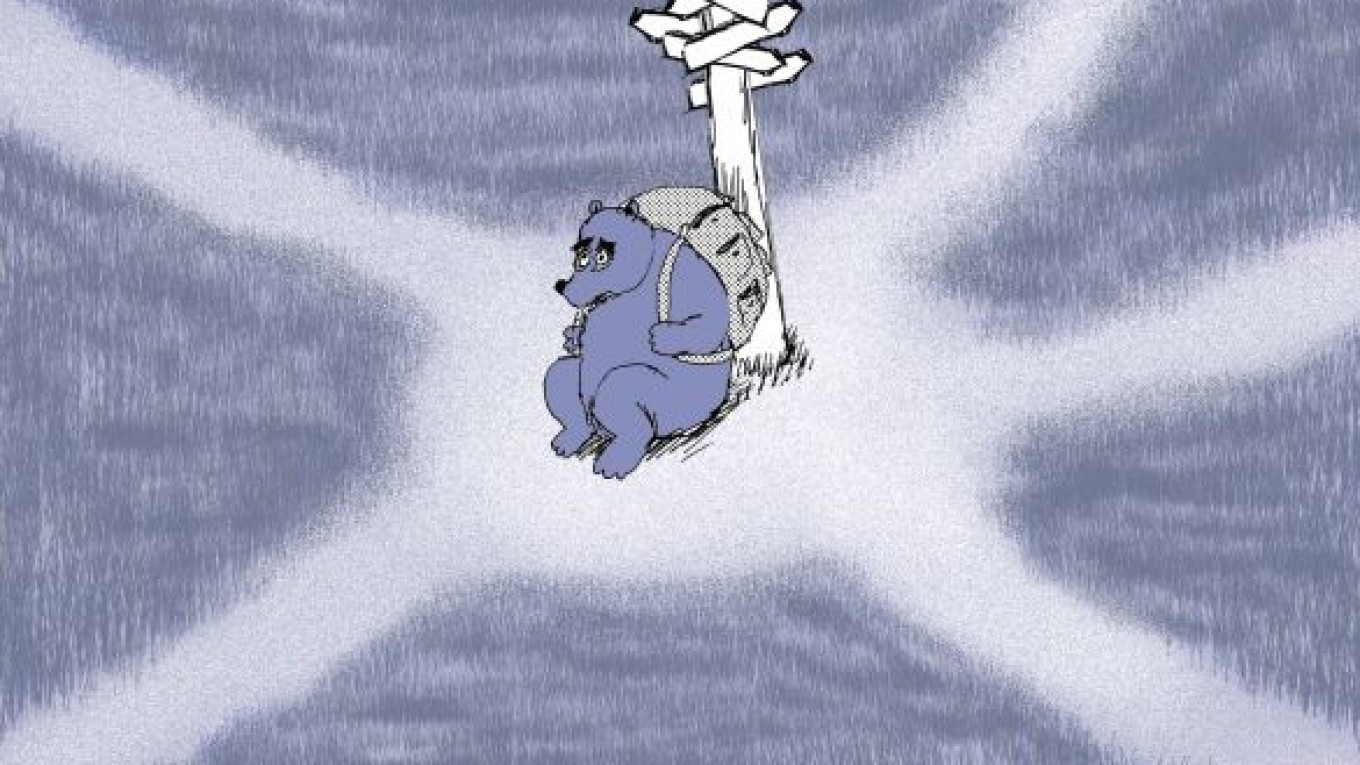Is President Vladimir Putin the Russian Mitt Romney? He certainly seems to see the United States as Russia's "No. 1 foe." The question, as always, is how much of this is sincere and how much is an attempt to manipulate the populace for domestic political reasons? This may be one of the rare cases in which cynicism is preferable to sincerity.
What is certain is that Russia's recent outburst of Americaphobia, expressed last week in the expulsion of USAID, is different from the epidemic of hateful fury that swept the Islamic world. Local political interests were at play there as well, but something greater was involved: the inevitable clash between a civilization that reveres freedom of speech and a civilization passionate about the sacred.
Russia, clearly, is neither. The Kremlin "respects" freedom of speech enough to take serious measures to suppress it. Though Russia is a secular society, it does not derive strength and vibrancy from genuine respect of that cluster of values — freedom of speech and assembly, an independent judiciary ?€” that make the truly democratic secular societies strong and, in difficult times, capable of regeneration.
At the same time, however, Russia has none of that blind emotional sense of the sacred that many Muslims feel for the Quran and the image of the prophet. The two-year sentence for the three members of Pussy Riot was much more about their political insolence than their violation of a cathedral's sanctity. Attempts to bring church and state closer together to create tsarist-like pillars to uphold the nation have not proved successful, nor can they. Too many Russians (not to mention the country's Muslims, Jews and Buddhists) will remain outside the church, which has itself been compromised in recent years. For many who truly love Russian Orthodoxy, the farther it is from the Kremlin's machinations, the better.
In fact, one of Russia's great problems since the collapse of the Soviet Union is that it has no cluster of strong, commonly held values. That makes it a society with no clear sense of its own identity. In today's Russia, there is nothing to believe in. What's more, no one, neither rulers nor the ruled, believes in this Russia.
One task that Russia has not yet dealt with adequately is reinventing itself as a post-superpower. It is of course still a great power. Its size, weapons and seat on the United Nations Security Council guarantee that. Still in flux, though, it faces five different choices, possibilities or ways of being:
- It could conceivably make an attempt to create a 21st century of tsarist or Soviet imperial might. It could seize control of Belarus, its Sudetenland. If it got away with that, it could set its sights on eastern and southern Ukraine, which are heavily Russian, then go on to 'liberate" parts of northern Kazakhstan. This is exceedingly unlikely but not impossible.
- It can throw in its lot with Europe and the United States in an alliance against China in the coming "resource wars."
- On the contrary, Russia could throw in its lot with China. Both countries suffer from a similar strain of Americaphobia, fearful of containment and contamination by nongovernmental organizations. The Chinese worry that radar installations in Japan to be deployed against a North Korean nuclear threat are actually directed against them. The Russians think the same about the anti-missile sites directed against Iran in Poland. Russia has the largest amount of fallow arable land in the world, and China has 1.3 billion people to feed. Agricultural cooperation has already begun in Russia's underpopulated eastern territories.?
- Russia can continue on the path of accelerated repression taken since Putin's inauguration in May. This will result in alienation, brain drain and capital flight. That, coupled with a failure to diversify the economy, will lead to social collapse around the middle of the century, unless postponed by an Arctic oil bonanza.
- The most hopeful possibility is that Russia will go its own way and find the strength within its rich and resilient culture to fashion a new society that is prosperous and more just and democratic. Some see the recent flurry of volunteer organizations as the first signs of Russia generating a civil society from the bottom up. A grassroots revival is especially important in a society that has known change only from the top down, from violent revolution or from the chaos that follows on collapse.
Russia's friends in the West ?€” and it may have more that it sometimes thinks ?€” must do what they can to prevent the Kremlin's current paranoid style from producing negative foreign policy consequences in the real world. Americaphobia in Russia can easily spark Russophobia in the West, which, as Romney's remarks demonstrate, still has its knee-jerk adherents.
Richard Lourie is the author of "The Autobiography of Joseph Stalin" and "Sakharov: A Biography."
Related articles:
A Message from The Moscow Times:
Dear readers,
We are facing unprecedented challenges. Russia's Prosecutor General's Office has designated The Moscow Times as an "undesirable" organization, criminalizing our work and putting our staff at risk of prosecution. This follows our earlier unjust labeling as a "foreign agent."
These actions are direct attempts to silence independent journalism in Russia. The authorities claim our work "discredits the decisions of the Russian leadership." We see things differently: we strive to provide accurate, unbiased reporting on Russia.
We, the journalists of The Moscow Times, refuse to be silenced. But to continue our work, we need your help.
Your support, no matter how small, makes a world of difference. If you can, please support us monthly starting from just $2. It's quick to set up, and every contribution makes a significant impact.
By supporting The Moscow Times, you're defending open, independent journalism in the face of repression. Thank you for standing with us.
Remind me later.


